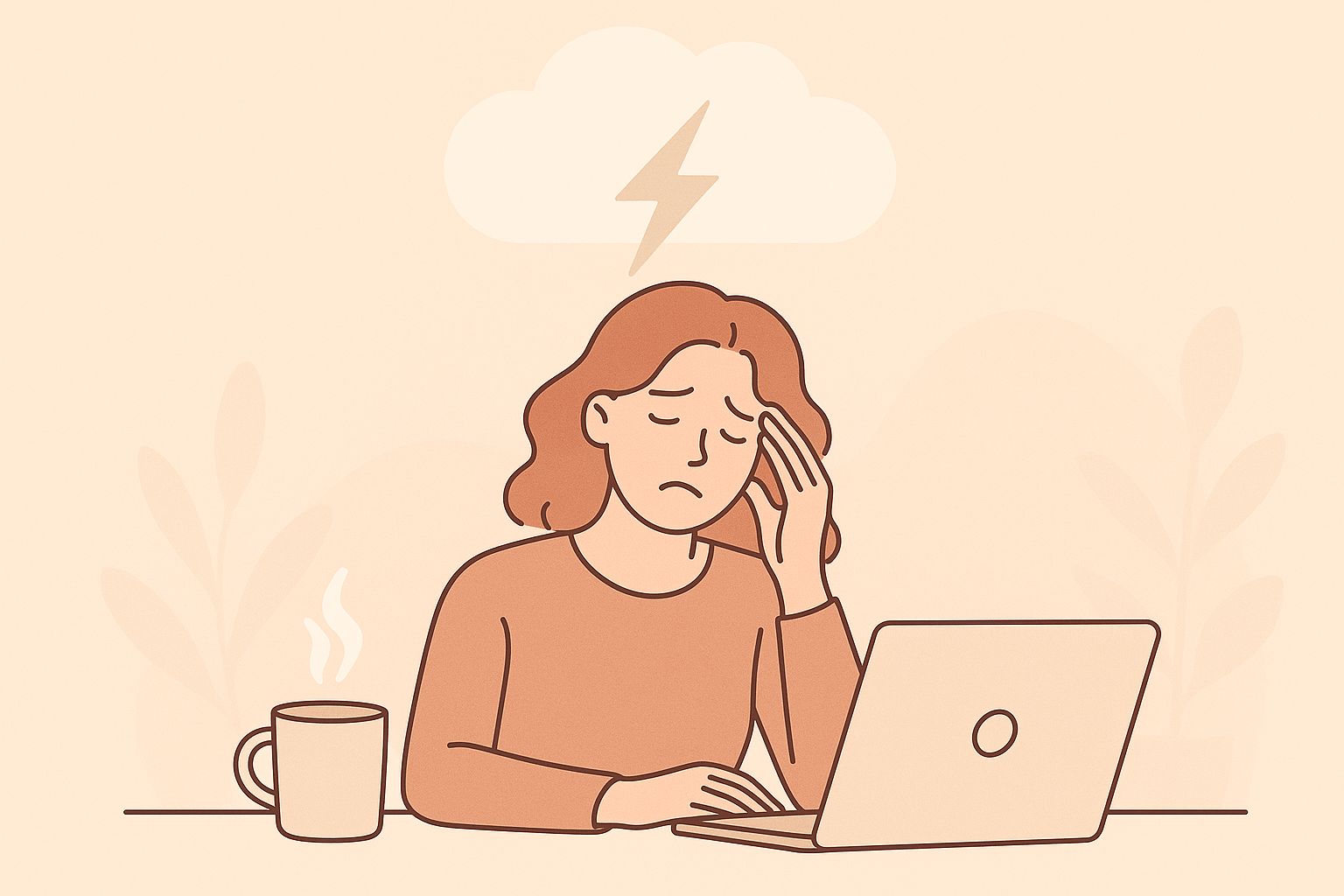You follow all the wellness rules—organic food, 8 glasses of water, early bedtime—but somehow you still feel completely drained. Your brain feels foggy, your body feels heavier than it should, and by mid-afternoon you're practically living on caffeine just to function.
Most people assume it's "just stress" or "part of getting older." But here's the truth: there's a hidden culprit stealing your energy every single day… and it's probably not even on your radar.
👉 Everyday toxins.
The Invisible Chemical Overload We All Face

We're all swimming in a mix of everyday chemicals: from the air in our homes to the water in our cups, from our favorite mascara to that "fresh" laundry scent.
Scientists estimate we encounter over 80,000 different chemicals every single day, far more than our bodies were ever designed to handle¹.
The good news is, your body is incredible. Your liver, kidneys, gut, skin, and even your breath are constantly working to clear out harmful substances. The challenge? When toxins accumulate faster than your natural systems can process them, things start to slip through the cracks.
And that's when you notice:
Brain fog right when you need focus most
Stubborn weight even with clean eating
Deep fatigue that quality sleep doesn't resolve
Sound familiar?
Where These Energy Zappers Hide in Plain Sight
In your living space:
Cleaning products release volatile compounds you inhale without realizing it²
Personal care items (makeup, shampoos, lotions) often contain hormone-disrupting ingredients like parabens and phthalates²
Household dust carries mold spores and chemical residues that keep your immune system working overtime³
In your food and beverages:
Tap water can contain trace amounts of heavy metals like lead and arsenic⁴
Conventionally grown produce may carry pesticide residues that burden your liver and digestive system⁵
Processed foods often contain additives linked to mood swings and digestive disruption⁶
In your environment:
Air pollution and vehicle exhaust create a steady stream of toxic exposure²
Plastic packaging can leach hormone-disrupting chemicals into your food and drinks¹
This isn't about creating fear; it's about understanding where these sneaky exposures originate so you can make informed choices.
The Warning Signs We Often Ignore
So many women attribute these symptoms to "normal aging" or "everyday stress." However, research consistently shows they often indicate toxic overload⁷⁸:
Energy & Mental Clarity
Persistent fatigue despite adequate rest
Memory lapses or mental cloudiness
Difficulty concentrating on important tasks
Emotional Well-being
Anxiety that appears without obvious triggers
Unexplained mood fluctuations
Feeling emotionally "flat" or disconnected
Physical Symptoms
Chronic bloating or resistant weight issues
Skin breakouts, dullness, or mysterious rashes
Joint stiffness or muscle aches unrelated to exercise
Over time, this toxic accumulation can elevate risk for serious health conditions including autoimmune disorders, cardiovascular disease, and neurological decline⁹. But here's the encouraging news: you have the power to lighten this burden.
Your Body's Natural Healing Wisdom
Here's what's truly amazing: your body already possesses everything it needs to heal itself. Every single day, it performs natural detoxification through multiple pathways — your liver processes waste products, kidneys filter toxins, digestion eliminates byproducts, skin releases impurities, and your lungs help clear harmful substances.
The issue isn't that your body is failing. It's simply overwhelmed by the sheer volume.
Clinical studies demonstrate that gentle detox support, including antioxidant-rich foods, regular movement that promotes sweating, and strategic reduction of toxic exposures, can significantly lower inflammation and restore vitality within weeks¹⁰.
Simple Swaps That Make a Real Difference
Everyone's toxic exposure profile is unique, but one principle applies universally: small, consistent changes create the most sustainable results.
Start with one simple swap:
Replace conventional cleaning products with castile soap or vinegar-based solutions
Choose organic versions of the "Dirty Dozen" fruits and vegetables
Switch one personal care product to a cleaner alternative each month
Add one detox-supporting food:
Cilantro helps eliminate heavy metals from your system
Cruciferous vegetables (broccoli, kale) support liver detoxification
Green tea provides powerful antioxidants that combat cellular damage
Shift one daily habit:
Open windows for 10 minutes to improve indoor air quality
Use glass containers instead of plastic for food storage
Take regular breaks to step outside and breathe fresh air
Little by little, your body gains breathing room and you begin to experience renewed lightness, mental clarity, and natural energy.
PS: Not sure where to start? Reply and share your biggest energy challenge with me. I read every message and often feature questions in upcoming DetoxWire issues.

